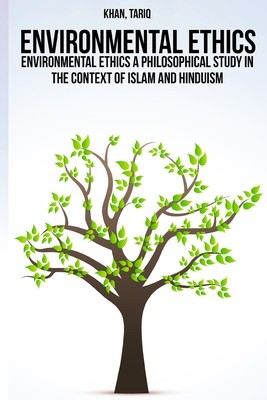
- We will send in 10–14 business days.
- Author: Tariq Khan
- Publisher: Laeeqahmad
- ISBN-10: 1805455028
- ISBN-13: 9781805455028
- Format: 15.2 x 22.9 x 0.8 cm, minkšti viršeliai
- Language: English
- SAVE -10% with code: EXTRA
Environmental ethics a philosophical study in the context of Islam and Hinduism (e-book) (used book) | bookbook.eu
Reviews
Description
The history of ethics, which starts about the period of 6
thcentury B.C., was
entirely related to moral philosophy which has its own uniqueness and was divided
into three periods. The medieval era of ethics started from 500 A.D. to 1500 A.D; the
foremost subject of debate in the medieval times was its acceptance by early English
positivists. After the medieval period we move to the illuminated times and proceed
with Hobbes the father of modern ethics and this period started from 1500 A.D.
onwards. After Hobbes the thoughts of English and German ethics have been
distinguished. So because of that the English Intuitionists (naturalists) served by
Utilitarian's got opposed to Kantian ethics but in the 19th century these have been
discussed very furiously in Europe. The evolution concepts into physical sciences and
development of ethics developed by Comte, Darwin, Spencer backed by Green made
the impact of evolutionary concepts in 20thcentury also, but still shared amid
Utilitarian's and Kantians (Kant's categorical Imperative).1
In ethical institution each
period had its own special characteristics. In the Greek period the state shaped the
background of the moral life, and who so ever performed his duties as a responsible
citizens was regarded as a good man. The medieval period was dominated by
Christian religion in Europe, so because of that the good moral life was identified
with the holy religious point of view. In the modern life, morality is concerned with
individual's rights and duties in order to free other individuals.
EXTRA 10 % discount with code: EXTRA
The promotion ends in 21d.23:32:42
The discount code is valid when purchasing from 10 €. Discounts do not stack.
- Author: Tariq Khan
- Publisher: Laeeqahmad
- ISBN-10: 1805455028
- ISBN-13: 9781805455028
- Format: 15.2 x 22.9 x 0.8 cm, minkšti viršeliai
- Language: English English
The history of ethics, which starts about the period of 6
thcentury B.C., was
entirely related to moral philosophy which has its own uniqueness and was divided
into three periods. The medieval era of ethics started from 500 A.D. to 1500 A.D; the
foremost subject of debate in the medieval times was its acceptance by early English
positivists. After the medieval period we move to the illuminated times and proceed
with Hobbes the father of modern ethics and this period started from 1500 A.D.
onwards. After Hobbes the thoughts of English and German ethics have been
distinguished. So because of that the English Intuitionists (naturalists) served by
Utilitarian's got opposed to Kantian ethics but in the 19th century these have been
discussed very furiously in Europe. The evolution concepts into physical sciences and
development of ethics developed by Comte, Darwin, Spencer backed by Green made
the impact of evolutionary concepts in 20thcentury also, but still shared amid
Utilitarian's and Kantians (Kant's categorical Imperative).1
In ethical institution each
period had its own special characteristics. In the Greek period the state shaped the
background of the moral life, and who so ever performed his duties as a responsible
citizens was regarded as a good man. The medieval period was dominated by
Christian religion in Europe, so because of that the good moral life was identified
with the holy religious point of view. In the modern life, morality is concerned with
individual's rights and duties in order to free other individuals.


Reviews